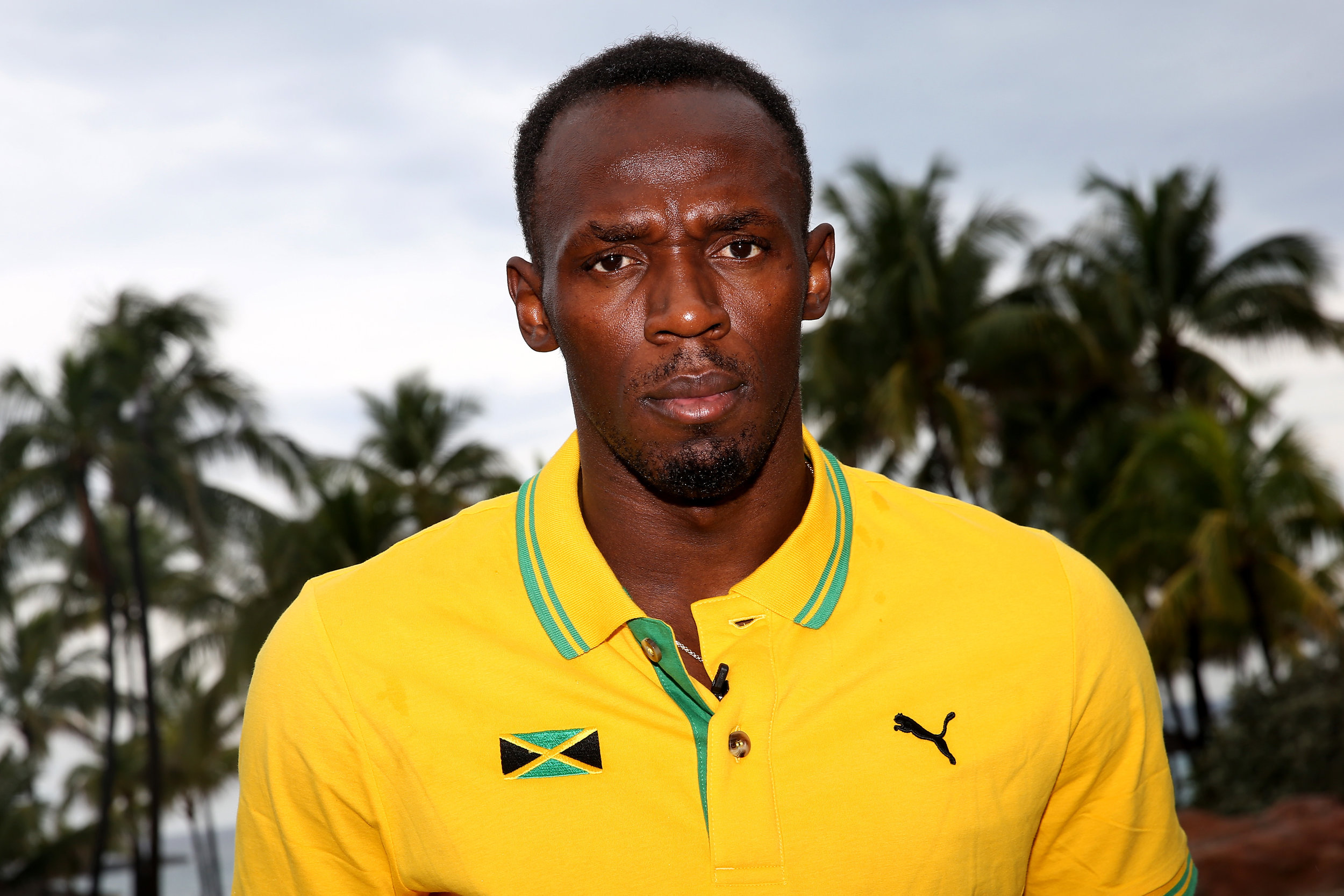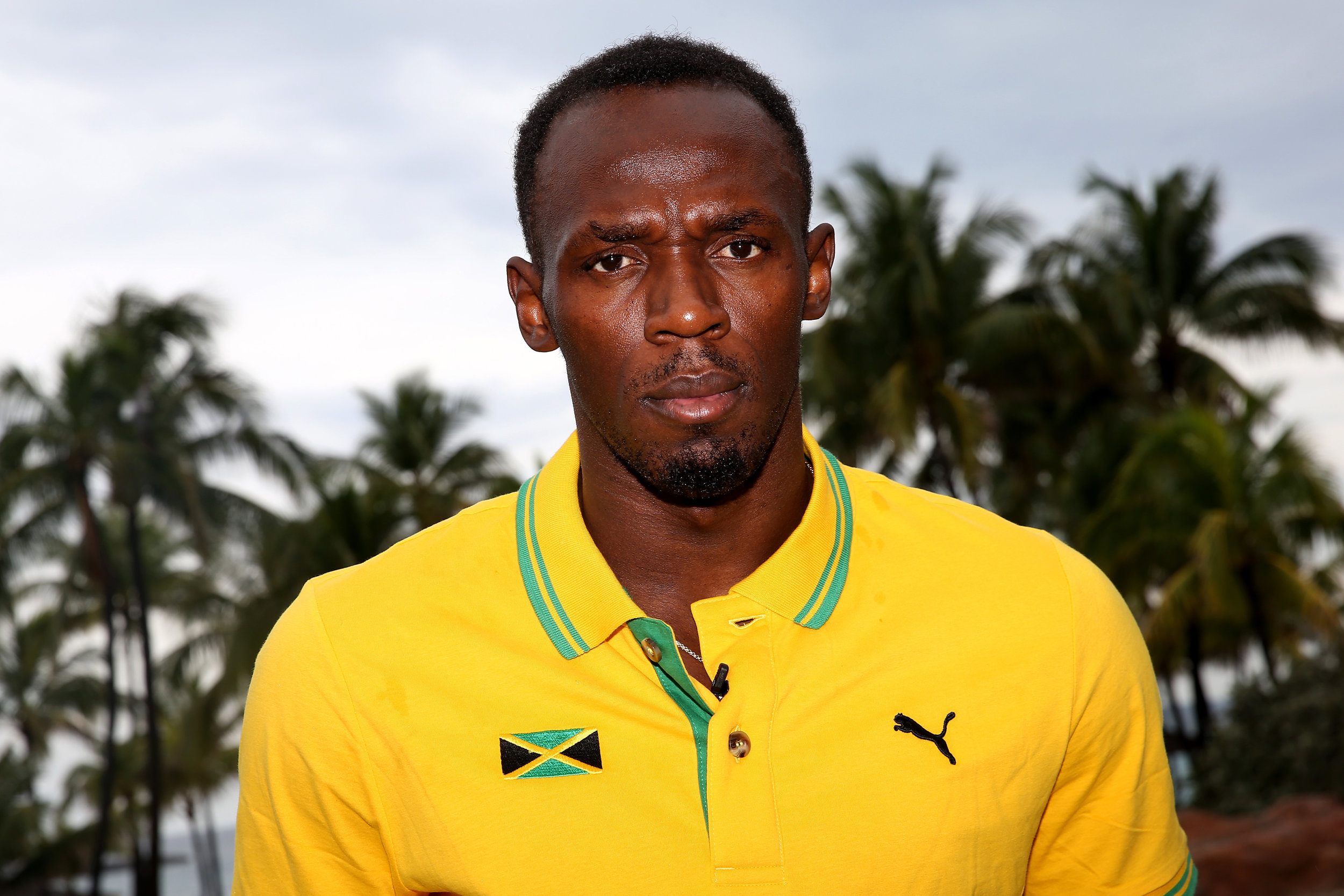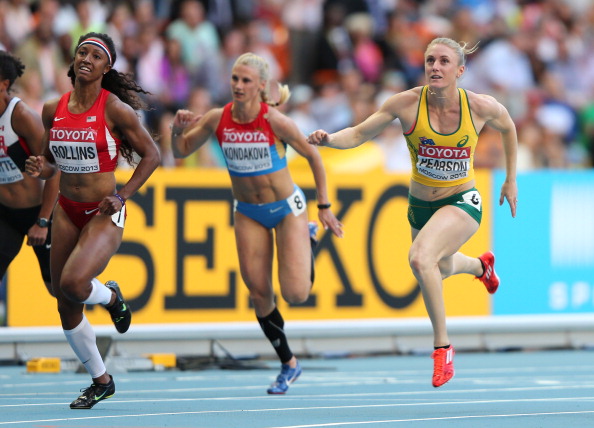NASSAU, Bahamas — See, this is exactly the kind of thing that track and field needs, the spotlight on a seemingly relaxed Usain Bolt on Friday in advance of the second edition of the World Relays. Better yet still, what Bolt had to say. Asked by a British reporter about Tyson Gay and Justin Gatlin, Bolt reiterated that he thought Gay’s recent doping ban was “unfair” and “sent the wrong message.” Then: “Justin Gatlin is a great competitor. He is one of those guys who talks a lot and [doesn’t] say a lot. So for me it makes the sport interesting, and I look forward to running with him this season. It’s going to be interesting. Because he has been saying quite a lot.”
OK!
Two things:
First, all sports need stars.
For better or worse, Bolt is track and field in the imagination of much of the general public. The more he runs, the better off the sport is.
Last year, Bolt was hurt. Now it’s a new season. With full respect to the true believers who worship (and understandably) at the likes of the Penn and Drake Relays in the United States, the international season really kicks into gear now. As Bolt said, the full Jamaican team is here in the Bahamas.
Second, the list of things track and field needs to better compete on the international stage might be long, indeed. But any short list would include a rivalry.
Better yet, rivalries.
But at least one.
And if the storyline of the season, heading into the world championships in late August in Beijing, is Gatlin v. Bolt — bring it on.
If Gatlin is the self-styled “Batman of the track,” a “vigilante,” the sort who is — as he acknowledges — not liked but needed, the contrast with Bolt could not be more vivid.
Bolt is popularly portrayed as the super-fun action hero. Indeed, that was Bolt whom the kids — and even the moms and dads — were waiting to catch a glimpse of, and take a picture of, here Friday.
In the public imagination, it’s really no contest.
Gatlin is the 2004 Olympic 100-meter champion. He is five years out from a four-year doping ban. (His second doping offense, for the record.) He has denied knowingly taking performance-enhancing substances.
Bolt’s 100 world record stands at 9.58, run in 2009. Gay and Jamaica’s Yohan Blake stand next, both at 9.69, Gay’s in 2009, Blake’s in 2012. Gay tested positive for a banned substance in 2013 and, after cooperating with the U.S. Anti-Doping Agency, received a one-year ban. Bolt has said Gay should have been “kicked out of the sport” for doping and called Gay’s reduced term “the stupidest thing I’ve ever heard.”
At issue is what this coming season will bring.
Gay? No one quite knows.
Last year was all Gatlin and very little Bolt.
In 2014, Bolt ran all of a total of 400 meters in competition because of a foot injury.
Gatlin, meantime, ran six of the year’s seven fastest 100-meter times. He set personal bests in the 100, 9.77, and in the 200 meters, 19.68.
The 9.77 matched Bolt’s winning time at the 2013 world championships in Moscow. It also made Gatlin the fifth-fastest guy of all time: Bolt, Gay, Blake, Asafa Powell (9.72), Gatlin.
At a news conference, Bolt asserted Friday that he is healthy again.
By February of this year, he said, he started feeling pretty much like himself.
The goal for 2015, he said, is first and foremost to stay healthy through the spring and summer. Then it’s to use the various meets as “stepping stones” — that is, as a ramp-up for the worlds in Beijing. There, it’s all about the familiar Bolt sprint double, and the 4x1 relay.
Michael Johnson, the 1996 and 2000 Olympic champion said Friday that if Bolt is healthy, “There’s no one who can beat him when he is at his best.”
Bolt said, “For me, I am just happy to be back competing at full health. I have been training really hard. I have been putting in the work.”
It was here, in the Bahamas, that Usain first came in 2002, an unknown. The locals were the first to name him “Lightning Bolt.”
He didn’t compete at last year’s World Relays. The Jamaican 4x200 team — Nickel Ashmeade, Warren Weir, Jermaine Brown and Blake — ran to a world-record 1:18.63, breaking a 20-year-old mark held by the renowned Santa Monica Track Club. Blake isn’t anchoring this year; there’s at least a decent likelihood Bolt will be.
Will the American 4x2 team include Gatlin? He ran last week in the 4x1 at the Penn Relays.
Gatlin figures to run in the 4x1 here as well. Bolt, too.
“Any time I compete in the Caribbean I get so much love,” Bolt said, adding a moment later, “For me, it’s going to be wonderful competing here. I know it’s going to be great. I know it’s going to be crazy.”





